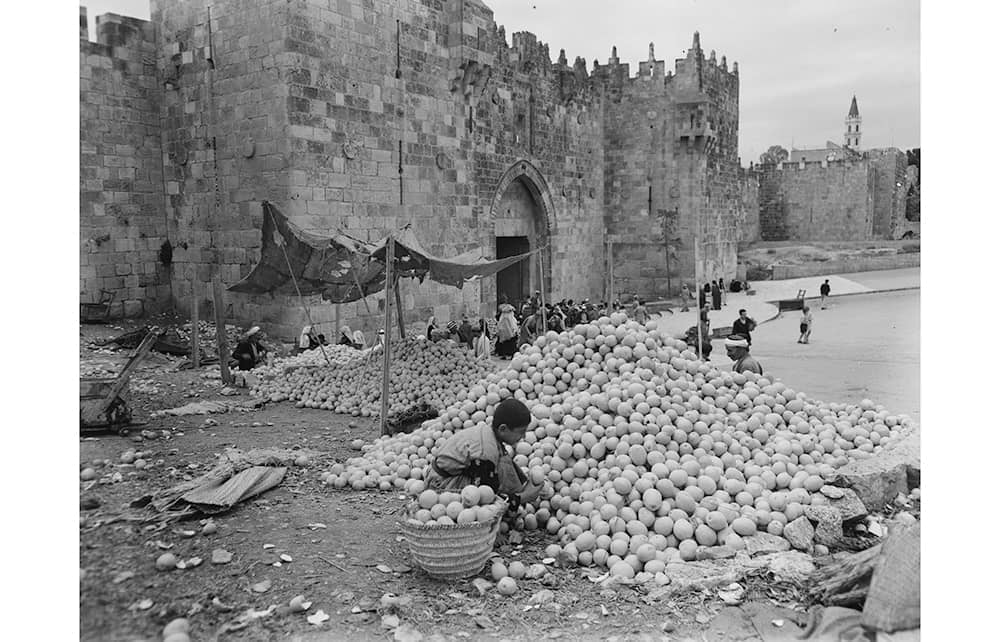Roger Hardy is a romantic. That much I deduce from the language he uses to describe how photographers were drawn to the special quality of light in Palestine. Their images, he writes, ‘capture the play of light and shade on the limestone walls of Jerusalem’s Old City, the glistening watermelons on sale at open-air markets, the white apartment blocks of the new metropolis of Tel Aviv, the dusty rubble of houses blown up by soldiers during the rebellion of the 1930s’. The last few words reveal a steely realism, too, a quality developed, no doubt, during the more than 20 years he worked as a Middle East analyst for the BBC World Service. As a cub reporter at Bush House 25 years ago, I used to interview him for the language services and always found him owlish, donnish and impressively well-informed.
Here he turns his attention to Palestine in the century before it became Israel and the Occupied Palestinian Territories, using the testimony of letters, diaries and memoirs to tell an alternately tragic and triumphant story, illustrated by superb photography. The book is worth buying for the wonderful black-and-white images alone.
This was a critical century. It saw Europeans, and in time Americans, rudely interrupt, interfere with and ultimately replace the Ottoman colonial rule which had existed in Palestine ever since Sultan Selim the Grim took Jerusalem in 1517 – just one of the 35 times the city was conquered from antiquity to 1917. In Hardy’s nicely laconic turn of phrase: ‘Palestine’s historic misfortune was to be coveted by others who were convinced they had a better right to it than its inhabitants.’ From the mid-19th century, the British, French and Russians led the charge, manoeuvring for advantage, joined by other powers and the proliferating Christian sects in a rivalry famously described by Edward Lear as ‘Jerusalem squabblepoison’.
Crusaders, Ottoman pashas, British imperialists, Zionist settlers and Arab landowners all abused the ‘bride’
Hardy deftly blends history from on high with street-level and (because this is Palestine) street-fighting history.







Comments
Join the debate for just £1 a month
Be part of the conversation with other Spectator readers by getting your first three months for £3.
UNLOCK ACCESS Just £1 a monthAlready a subscriber? Log in